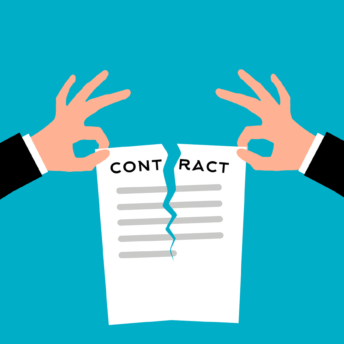Mergers occur when two companies combine to form one. The new company will have a larger market share, allowing it to achieve economies of scale and become more successful. Additionally, the merger will diminish competition and may result in higher pricing for consumers. However, according to Harvard Business Review, 70 to 90 percent of mergers are unsuccessful. It’s a staggering amount, and the only thing they have in common is human resources. Most mergers fail because key employees quit, teams don’t get along, or demotivation sets in at the acquired company. In this article, why mergers fail, we take a look at the process involved and the options available to you.
Free Initial Telephone Discussion
For a free initial discussion with a member of our New Enquiries Team, get in touch with us today. We are experienced in dealing with all the legal aspects of company mergers, and once instructed, we will review your situation and discuss the options open to you in a clear and approachable manner. Early expert legal assistance can help ensure you are on the best possible footing from the start and also avoid the stress of dealing with these issues on your own. Simply call us on 0345 901 0445 or click here to make a free enquiry and a member of the team will get back to you.
Why do mergers fail?
There are a number of reasons mergers fail and they can include:
- Not having a back-up plan
When the time comes to sell your business, you might be tempted to accept the first buyer who approaches you with a reasonable offer and a good cultural fit. After all, doing so would appear to lessen the duration and difficulty of the sales process. This strategy can be effective, but it can also result in a failure. If the buyer feels or knows that it is in control, it may pay what it considers to be a fair price, not necessarily what the seller considers fair.
Without competition, a seller loses crucial leverage and may be compelled to make concessions.
- Not understanding the circumstances of both buyer and seller
Sellers are often categorised by two distinct types: one seeking the greatest money for the firm and another seeking the best buyer for the people, families, workers, and community associated with the business. Purchasers, on the other hand, come in a variety of forms, ranging from strategic buyers that supply the same services to investment bankers seeking to build and flip an asset, among many others.
- Lack of understanding of what makes the business successful
In the midst of all the documentation and noise from investment bankers and advisors, a thorough knowledge of the answers to the following two questions is typically overlooked: What has made the target firm successful? What do they know about their products, customers, personnel, distribution, and technology that no one else does? Frequently, the purchasing business creates financial assumptions and projections to justify the acquisition before comprehending the corresponding replies.
This knowledge is only possible if the acquiring firm can abandon the aforementioned incorrect ideas and be willing to view the world through the acquired company’s eyes. This frequently occurs in collaborative discovery and planning meetings.
The ethos of both companies is an important consideration in a successful merger. If there is a big difference in how the two businesses go about their business, problems may lie ahead.
- Managing expectations of the seller
A seasoned M&A consultant can assist in preparing a seller for the selling process, including what types of offers to anticipate. Both parties must achieve an agreement on the expectation of the sale before going to market.
- Hidden debt or other financial discrepancies
It is important to be honest with your professional advisor. Paint an accurate, comprehensive portrait of your firm, including both its successes and challenges. The advisor may have quick recommendations to stabilise the situation until the ideal buyer is identified, or he or she may be able to expedite the process to optimise value. Never attempt to conceal anything.
- Ownership details of the business owner
It is relatively simple to change the owner’s name of a firm. You may elect, for whatever reason, to make your spouse or child the owner. Depending on your business sale strategies and the regulatory requirements of your purchaser, this may be a significant detail.
- Lack of communication
The M&A process is lengthy and might take several months or perhaps a year or longer. Communication begins with the manner in which your firm is introduced to prospective clients. It intensifies during the negotiations of a letter of intent and, finally, during the closing. Communication breakdowns can jeopardise a transaction at any of these stages.
Maintaining regular, open communication during the process of due diligence helps facilitate a more positive encounter. The buyer and seller should communicate their expectations in order to ensure that their future priorities are aligned. This can assist in preventing future culture shocks.
- Choosing the wrong advisors
Buyers are often seasoned professionals who have been through the M&A process numerous times. Most likely, sellers have not, which is why they require a solicitor with experience in this field. Details and wording involved in M&A transactions are frequently intricate. An expert M&A solicitor will know to look for common terminology and terms so that the seller’s best interests are represented in the transaction. This solicitor will also not waste time on other usual buyer safeguards. Not only are you wasting time, but you may also be aggravating and insulting the buyer if your solicitor disputes over terminology or points that are normally conventional in a contract.
Ensure that you have someone on your side who is familiar with the legal hazards and weaknesses you will face during the closing stages of a transaction. This will ensure that you receive the highest level of protection while comprehending the nuances of legal lingo.
Enlisting the assistance of a knowledgeable advisor to explain the good, the bad, and the ugly between the buyer and seller will aid in avoiding unpleasantness and allow both parties to work in harmony following the closing. It is essential to know that a single individual is directing the entire process, from introduction to integration.
- Lack of understanding of everyone’s role after the merger
It is an art, not a science, to determine who will do what in a merged organisation. The majority of the collected information about the organization’s employees is a gut feeling based on meetings and interviews. These hunches are always useful, but never sufficient, when it comes to comprehending the valuable asset of people.
How we can help
We have a proven track record of helping clients deal with the process involved in company mergers. We will guide you diligently and ensure all checks are carried out swiftly and efficiently and we firmly believe that with the right solicitors by your side, the entire process will seem more manageable and far less daunting. You can read more about the range of corporate services we offer by clicking here: https://blackstonesolicitorsltd.co.uk/corporate-legal-services/
How to Contact Our Corporate Solicitors
It is important for you to be well informed about the issues and possible implications of a business merger. However, expert legal support is crucial in terms of ensuring your business is set up correctly.
To speak to our Corporate solicitors today, simply call us on 0345 901 0445, or click here to make a free enquiry. We are well known across the country and can assist wherever you are based. We also have offices based in Cheshire and London.





